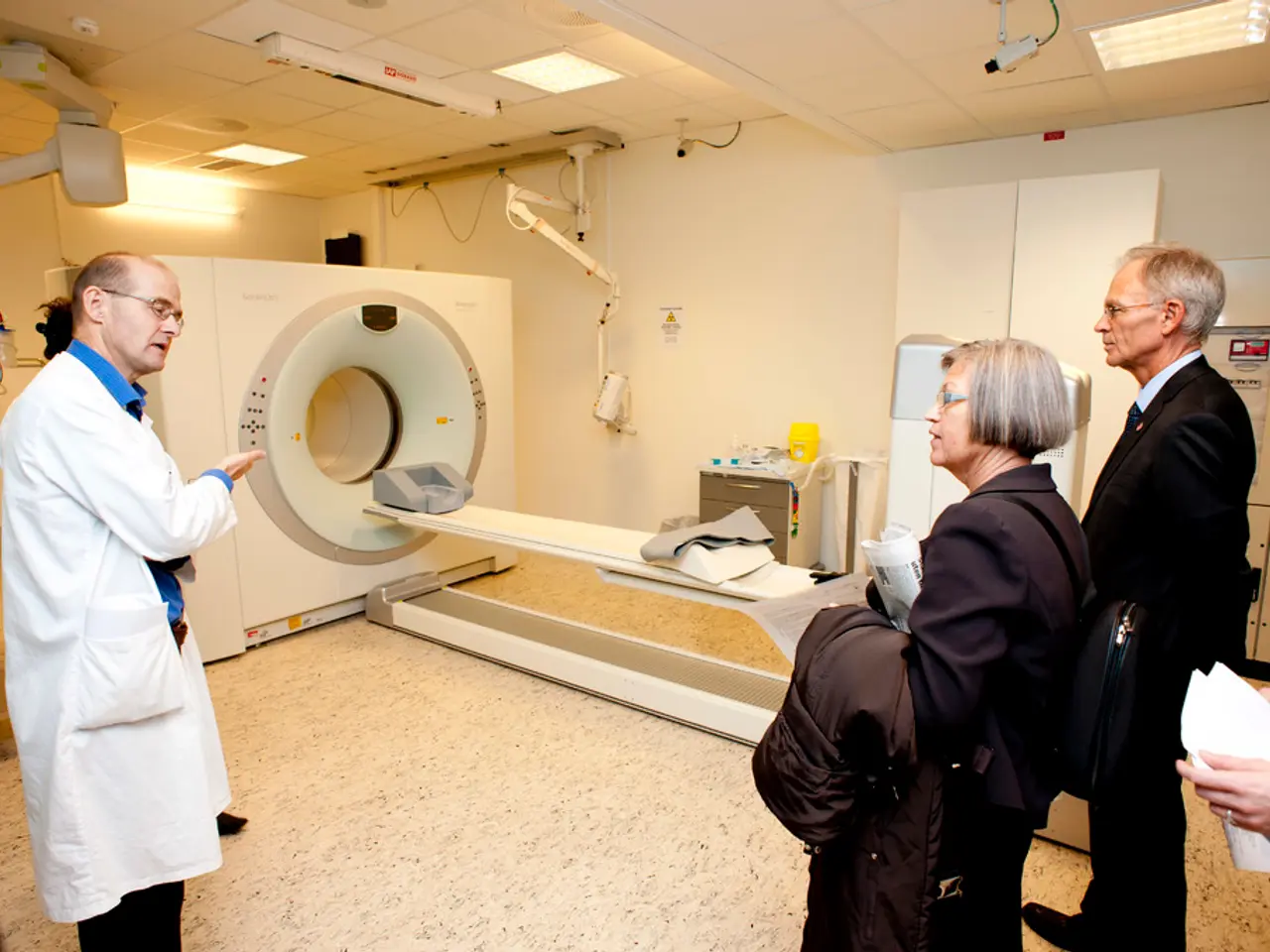Medical Specialist in Digestive System: Description, Ailments, and Treatments
In the realm of healthcare, gastroenterologists play a crucial role in the investigation and management of various conditions affecting the digestive system. These medical professionals specialize in the study of the gastrointestinal tract and its associated diseases.
To become a gastroenterologist, a doctor must first complete a 3-year internal medicine residency after medical school, followed by 2-3 years of specialized training called a fellowship. This comprehensive training equips them with the knowledge and skills necessary to diagnose, treat, and manage a wide array of gastrointestinal disorders.
One of the key diagnostic tools gastroenterologists use is endoscopy. This procedure involves inserting a flexible tube with a camera to examine the esophagus, stomach, and upper small intestine. It is used to investigate symptoms such as persistent heartburn, nausea and vomiting, bleeding, problems with swallowing, stomach pain, unexplained weight loss, and more.
Another crucial diagnostic method is colonoscopy, which allows the gastroenterologist to examine the entire colon and rectum. This procedure is vital for detecting abnormalities such as polyps, inflammation, or cancer and serves as a vital screening tool, typically starting at age 45 or earlier if symptoms present. In contrast, sigmoidoscopy, similar to colonoscopy but limited to the lower colon segment, helps diagnose causes of abdominal pain, rectal bleeding, or chronic diarrhea.
Gastroenterologists also employ additional diagnostic tools like liver biopsy, ERCP (Endoscopic Retrograde Cholangiopancreatography), and capsule endoscopy. These methods provide detailed views of digestive organs and aid in the detection of various conditions.
In terms of treatment, gastroenterologists may perform or coordinate minimally invasive surgical procedures, common gastrointestinal surgeries, therapeutic treatments for conditions like hemorrhoids, and medication management, among others.
For instance, during a polypectomy, a gastroenterologist might remove one or more polyps from the lining of the bowel using wire loop forceps or an electric current. In cases of a narrowed esophagus, esophageal dilation is performed to stretch the area, often due to acid reflux, layers of excess tissue, cancer of the esophagus, or scarring from radiation treatment.
Gastroenterologists often work closely with other healthcare professionals, such as hepatologists, radiologists, and oncologists, to provide care to a wide range of people. They are instrumental in the diagnosis, treatment, and management of conditions such as colon polyps, colon cancer, celiac disease, hepatitis, heartburn (gastroesophageal reflux), gallbladder disease, irritable bowel syndrome (IBS), and pancreatitis.
Collectively, these procedures enable gastroenterologists to effectively diagnose, monitor, and treat a wide range of gastrointestinal diseases and disorders. They are the guardians of our digestive health, ensuring we can live our lives comfortably and without undue disruption from gastrointestinal issues.
- Gastroenterologists, specialized in the study of the gastrointestinal tract and its associated diseases, utilize various diagnostic tools like colonoscopy and endoscopy to investigate and manage a wide array of digestive health issues, including conditions such as polyps, inflammation, or cancer.
- A colonoscopy, crucial for detecting abnormalities within the colon and rectum, serves as a vital screening tool, playing a significant role in the early detection and prevention of colorectal cancer.
- To effectively diagnose, monitor, and treat a wide range of gastrointestinal diseases and disorders, gastroenterologists employ additional diagnostic tools such as liver biopsy, ERCP (Endoscopic Retrograde Cholangiopancreatography), and capsule endoscopy.
- In terms of treatment, gastroenterologists may remove polyps during a polypectomy, perform esophageal dilation for a narrowed esophagus, or coordinate minimally invasive surgical procedures, among other therapeutic interventions.
- As guardians of digestive health, gastroenterologists work closely with other healthcare professionals to provide care for a spectrum of medical-conditions, ranging from celiac disease and hepatitis to IBS (irritable bowel syndrome) and pancreatitis, ensuring a comfortable life for individuals without undue disruption from gastrointestinal issues.




